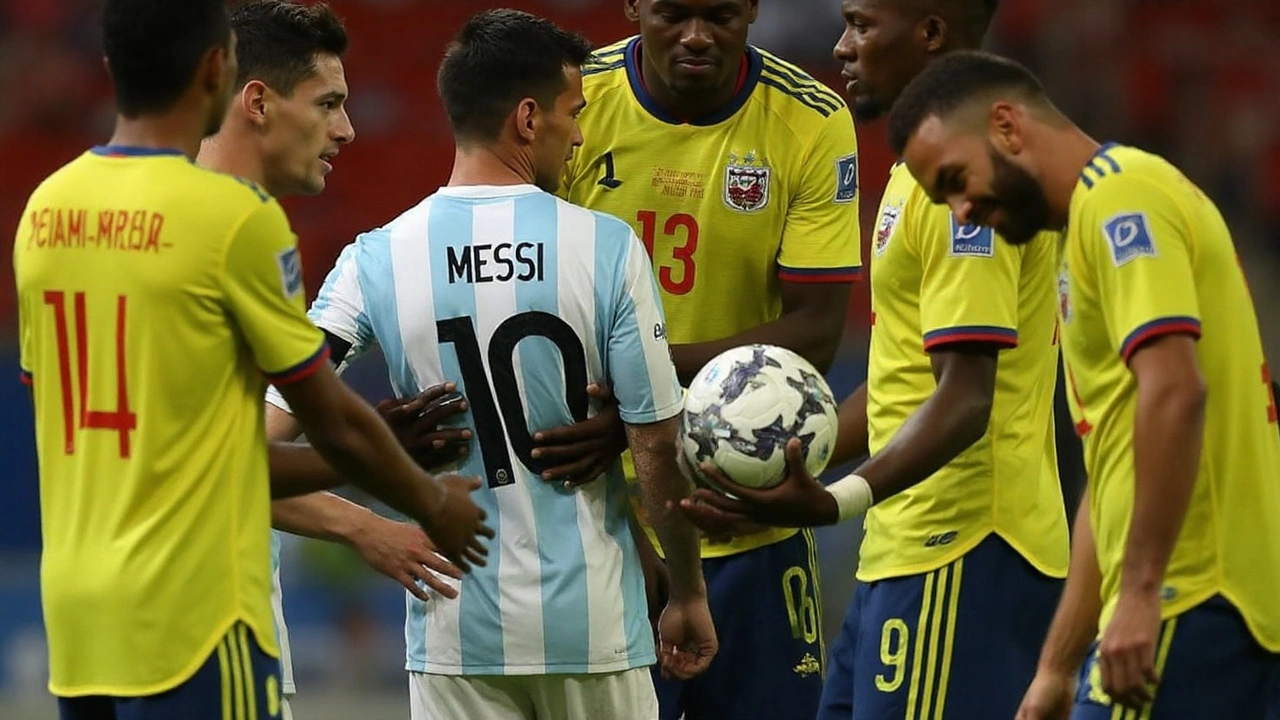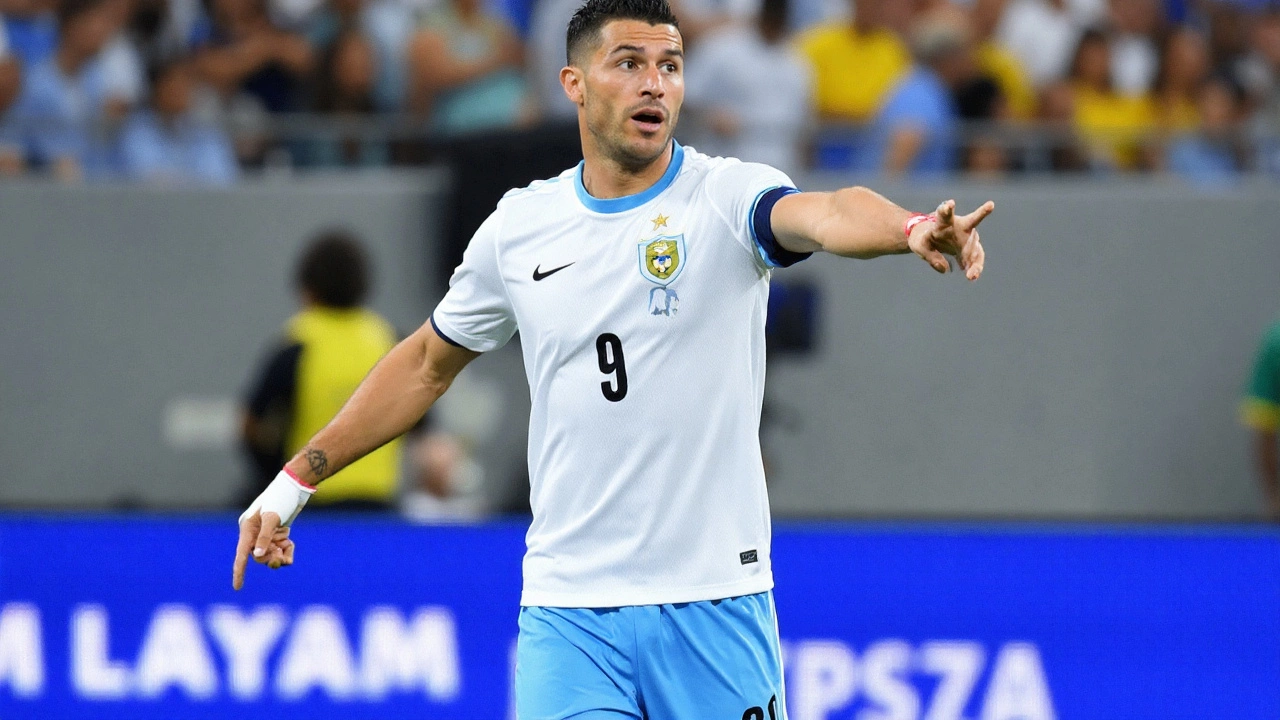A fired-up night for Uruguay—and a post-match flashpoint
Uruguay sent Brazil home on penalties and then the biggest fireworks happened off the pitch. After a grinding quarter-final that finished 0-0 in the United States, Uruguay held their nerve in the shootout to move on—an upset that rattled a tournament many had penciled in for Brazil. Moments later, the talking point wasn’t the scoreline. It was Andreas Pereira’s claim that Brazil were the better team anyway, and Luis Suarez’s sharp reply.
The match was the kind that reminds you what knockout football is: tight, tense, and unforgiving. Uruguay played more than 15 minutes with ten men after a late red card, dug in, and leaned on the edge that has defined them for generations. Brazil had more of the ball, but the chances were scarce. When it came down to penalties, Uruguay looked calmer. That’s not luck. That’s preparation meeting nerve.
Then came the words. Pereira, the former Manchester United midfielder now at Fulham, suggested Brazil had outplayed Uruguay despite the result. For Uruguay’s camp, that landed like a swipe at their effort. Suarez—who has never tiptoed around a microphone—stepped in and called the remarks disrespectful, backing his teammates and the collective fight that got them through.
For Suarez, this wasn’t just about a soundbite. It was about respect in a region where respect is earned the hard way. Uruguay’s locker room took pride in a performance built on grit and structure, especially after going a man down. To hear the losing side talk superiority? That was always going to sting. Suarez, a veteran of every kind of high-stakes night, said exactly what many in that room felt.
The result itself mattered beyond the rivalry. Brazil arrived as one of the favorites, even in transition. Uruguay, reshaped under Marcelo Bielsa, have looked ferocious out of possession and fearless in duels. This quarter-final showed both identities on full display—Brazil seeking rhythm and control, Uruguay embracing the fight and making it count when it mattered.
Copa America 2024 is as much about psychology as tactics. When a favorite falls, narratives shift. Uruguay’s win validated their approach—press, compete, and trust the collective. Brazil’s exit reopened familiar questions: Where’s the cutting edge? Who’s the leader when it gets ugly? And how does a team in rebuild mode carry itself after a bruising defeat?

The rivalry, the rebuilds, and the message behind the words
Uruguay vs Brazil isn’t just another quarter-final. It’s decades of history. Uruguay’s identity has long been built on bite and belief, the kind that turns stalemates into survival missions. Brazil’s identity is creativity and control, backed by a global expectation that they should win almost every night. When those worlds collide under tournament pressure, tempers flare—and comments carry extra weight.
Pereira’s post-game view—Brazil superior, result aside—wasn’t unusual for a modern dressing room. Players often back their performance data after a loss. But context matters. Uruguay had just navigated a red card, shut down Brazil’s best looks, and executed from the spot. That’s not “inferior.” That’s tournament craft. Suarez’s response wasn’t a rant; it was a reminder: the scoreboard is the only metric that counts in knockout football.
The coaching backdrops shape this too. Under Bielsa, Uruguay press high, compress space, and live on the edge without blinking. They’re not pretty for 90 minutes, but they’re relentless. Brazil, under new leadership this year, are still figuring out their mix—how to blend younger pieces with established names, how to turn possession into purpose. On a night like this, that learning curve shows.
It also showed in the game’s key beats. Uruguay were comfortable making it a fight. They didn’t let Brazil find rhythm between the lines. They absorbed the late chaos after the sending-off and refused to panic. Penalties? That’s where composure is a skill, not a coin flip. Uruguay looked like a group that had rehearsed the moment. Brazil looked like a group that feared the consequences of it.
Suarez’s intervention hits on another layer: locker-room culture. Uruguay’s veterans protect the group’s identity. Public criticism—real or perceived—gets met head-on. The message is clear: you can call us physical, stubborn, even ugly. But don’t call us less than you. In their world, humility and respect aren’t buzzwords. They’re part of the code.
Brazil will feel bruised beyond the exit. Any time they fall short in a major tournament, the post-mortems get loud: selection choices, missed chances, mentality. Pereira’s comment will split opinion—some will hear competitive pride; others, tone-deafness after a loss. Either way, it became the spark for a bigger story about where Brazil are and where Uruguay think they’re going.
Uruguay now move forward with something bigger than momentum. They have belief that their way works against elite opposition when the stakes rise. They outlasted one of world football’s giants with ten men and walked off with their heads high and their backs up. That matters in the next round as much as any tactical tweak.
For fans, the night had everything: a continental heavyweight clash, a red card, a penalty shootout, and a war of words that carried the emotion of the rivalry. It was raw, it was tight, and it was decided by nerve. In South America, that’s often enough to write history.
- Uruguay eliminated Brazil on penalties after a 0-0 quarter-final, surviving a late red card.
- Andreas Pereira said Brazil were the better side; Suarez called the comment disrespectful and backed his teammates.
- The exchange highlights Uruguay’s fierce identity under Bielsa and Brazil’s ongoing rebuild.
- Beyond tactics, it showed how mentality and respect shape big tournament moments.
So yes, the scoreboard settled the debate on the field. Off it, Suarez made sure no one forgot what it took to earn it.
